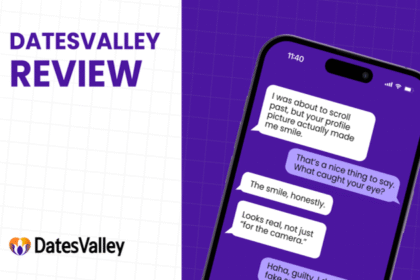Research shows that nearly one-third of professionals experience difficulties maintaining a healthy work-life balance, while 13% say their demanding schedules leave little time for personal life. Additionally, almost 60% of HR specialists admit they don’t always have time to pursue hobbies.
Another survey found that about two-thirds of employers support the idea of helping employees balance work and personal life. Some are open to offering flexible schedules or remote work, and many are understanding when staff need time off for personal matters.
However, only a small percentage of companies actively monitor overtime work, and even fewer have formal work-life balance programs in place.
How does the lack of work-life balance impact modern organizations? How are leading companies around the world addressing this issue—and what can HR professionals do to support themselves and their teams? We’ve gathered insights and practical solutions to answer these questions and more in this article.
Why is there so much talk about work-life balance?
The balance between work and personal life is incredibly important in today’s world. People strive to fulfill themselves in all areas of their lives, which means they need to be able to maintain balance. When this balance is disrupted, people inevitably experience stress, professional burnout, and problems in their careers and personal lives.
For companies, this means one thing: financial and human resource losses. Employees who manage to balance these two important areas of life are less prone to stress, more productive, and more motivated. Those who do not bring their personal lives to work and do not take work issues home with them develop professionally and make valuable contributions to the company’s growth.
Just as employees need rewards to stay motivated, sometimes a little personal enjoyment helps maintain balance — whether it’s a hobby, a walk, or even a break to try out a Wanted Win no deposit bonus at an online casino. Small, guilt-free breaks like this can refresh the mind and help people return to work more focused and productive.
That is why HR specialists around the world have been addressing the issue of work-life balance for several years now. Let’s talk about companies that have implemented successful practices in this area.
4 companies that have learned to ‘balance’
Slack
While many companies try to retain and motivate employees with creative recreation areas, the corporate communication platform Slack deliberately did not introduce anything unrelated to work into its office, such as ping-pong tables or yoga rooms.
The company’s policy is quite simple: ‘Work hard and go home.’ Work is for working, and home is for relaxing. Slack strives for maximum productivity during working hours and no overtime. Proof of this can be found in numerous articles on the corporate blog, one of which is dedicated to minimising distractions in the office. Slack does everything it can to ensure that the office is empty by 6:30 p.m.
Cisco
This American multinational network equipment manufacturer does not ‘kick out’ its employees every evening to enjoy their well-deserved rest. In fact, it does not tell them when or how to work at all, because as part of the Human Network social campaign, more than 66,000 of its employees are able to choose their own working hours. This way, every employee can take care of urgent personal matters or simply relax without feeling guilty, and complete their tasks later. Young parents at Cisco are allowed to work remotely.
‘The opportunity to break the monotony of routine can breathe fresh air and revitalise you. Cisco understands that we are, first and foremost, human beings. And spending time with our families or simply taking a walk around the neighbourhood to clear our minds is important,’ says company employee Brian Lauer.
Vynamic
No business emails or calls outside working hours. The healthcare company Vynamic has developed its ‘zzzMail’ policy. According to the rules, employees are not allowed to send emails to colleagues between 10 p.m. and 6 a.m. on weekdays, as well as on Saturdays and Sundays. If there are urgent messages, it is better to send them by post.
According to company representatives, since the policy was introduced, employee satisfaction has increased to 90 per cent. This once again confirms that the company’s motto ‘Life is Short. Work Healthy.’ works.
Perpetual Guardian
The Perpetual Guardian insurance company in New Zealand was one of the first to conduct an experiment and, based on its results, introduce a 32-hour working week. Now the organisation is an excellent example of the implementation of the 4 Day Week Global initiative. According to the results, employees not only manage to do the same amount of work in four days as they did in five, but also become 24 per cent more motivated and 20 per cent more productive.
It is Perpetual Guardian’s experience that inspires many companies around the world to adopt a four-day working week. For example, Microsoft Japan has already increased the productivity of its employees by 40 per cent through such an experiment.
Checklist: 6 simple ways to maintain balance
According to research by Forbes, an ‘endless’ working day is detrimental to an employee’s personal life and health. This issue has been studied by experts in the field of health and careers. They have expressed their opinions on how to maintain balance.
1. Forget about perfectionism
A successful career + a large family = a lot of responsibilities. And the more achievements a person has in these areas, the more responsibilities they have. The habit of doing everything perfectly can become destructive at some point. Marilyn Puder-York, PhD and coach, author of The Office Survival Guide, offers simple advice on avoiding burnout: let go of perfectionism.
2. Learn to switch off
Nowadays, technology both helps and hinders us. In an era of 24/7 online availability, anyone’s working day risks never ending.
‘There are times when you just need to turn off your phone and enjoy the moment,’ says Robert Brooks, professor of psychology at Harvard Medical School and co-author of The Power of Resilience: Achieving Balance, Confidence, and Personal Strength in Your Life.
3. Exercise and meditate
One of the most important needs of the body is physical exercise. This is the first thing to do when you have a busy schedule. Exercise and meditation are extremely effective for relieving stress. A good dose of endorphins will help lift your mood and relax your mind.
4. Don’t waste time
First, determine what is most important in your life. This list should be yours alone and truly reflect your priorities. Then clearly divide your time and try to spend it on the people and activities that are most important to you.
‘It’s not selfish,’ says Brian Robinson, professor emeritus at the University of North Carolina at Charlotte and author of Chained to the Desk. ‘Remember the rule on an aeroplane: if you’re travelling with a child, you put the oxygen mask on yourself first, not on the child.’
5. Avoid routine
Sometimes we ‘go around in circles’ and think that our habits are set in stone. Take a bird’s-eye view of your life and ask yourself: what changes could make my life easier?
Instead of trying to do everything, focus on the activities you specialise in and do not waste time on routine tasks.
6. Change slowly and gradually
We all know this — ‘starting Monday’ tasks and New Year’s resolutions that we forget by February. According to Robert Brooks, the same can be said about the balance between work and personal life. Many of his workaholic clients make radical changes: they reduce their working hours from 80 hours a week to 40. It is like increasing your daily run from zero to five kilometres.
‘If you are trying to change a certain scenario in your life, do it little by little,’ says Brooks.
Inner harmony
Establishing harmony between the two most important areas of life — work and family — is something that everyone strives for. In the search for balance, the main thing is to remember that it means finding a ratio that is comfortable for a particular person.
Listen to yourself and your employees. Be flexible in planning your work schedule and explore practices from foreign companies. Loyalty to the company is always highly valued by employees and is rewarded with years of productive cooperation.










